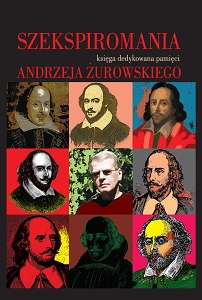Mirrored Image and the Dislocation of Culture in Ninagawa’s Shakespeare
Mirrored Image and the Dislocation of Culture in Ninagawa’s Shakespeare
Author(s): Manabu Noda
Subject(s): Theatre, Dance, Performing Arts, Cultural history, Theoretical Linguistics, Applied Linguistics, Studies of Literature, Philology, Theory of Literature, British Literature
Published by: Wydawnictwa Uniwersytetu Warszawskiego
Keywords: Yukio Ninagawa; Japanese theatre; Tatsumi Hijikata; Shakespeare
Summary/Abstract: Yukio Ninagawa (b. 1935) is one of the most internationally known Japanese theatre directors for his productions of Western classics. However, he often seems defensive about directing them. My essay tries to argue that his defensiveness can be interpreted as a form of self-imposed Orientalism which consigns the mind to the West, the body to the East. For instance, in his praise of Tatsumi Hijikata’s 1972 butō piece Shiki-no tameno Nijūichi-ban [Twenty-seven Nights for the Four Seasons], Ninagawa showed his strong sympathy with the way Hijikata mixed the intellect of the West with the physicality of the East. Hijikata’s dances were broadly regarded as an unsightly form of parading and grotesque physicality, but as Ninagawa saw it, Japan’s origins were in this dark deformity. The dark origins of the indigenously Japanese was to Hijikata what the archetypal populace is to Ninagawa. The volatility of the crowd which Ninagawa loves to stage reflects the ambivalent modernity of post-World War II Japan. Ninagawa looked back on some imagined past for the origin or archetype of their nationality which he hoped might serve as an alternative to the kind of modernity of their undeniably westernized country. My paper examines ambivalent modernity in the way Ninagawa stages Shakespeare and other plays as mirroring the populace of the post-World War II political milieu of Japan.
Book: Szekspiromania. Księga dedykowana pamięci Andrzeja Żurowskiego
- Page Range: 213-230
- Page Count: 18
- Publication Year: 2013
- Language: English, Polish
- Content File-PDF

